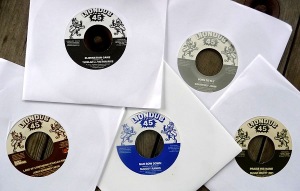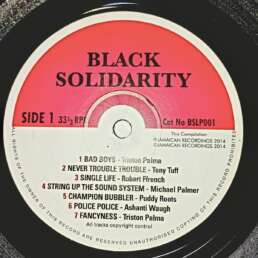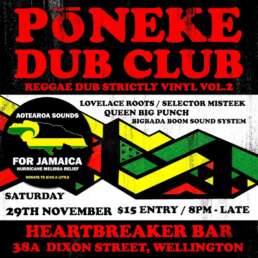Do you think that nostalgia can compromise creativity, that is to say, being so focused on an older analog aesthetic, how do you make creatively progressive music? Obviously your music does have its own identity, rather than being strictly archeological. What do you feel you’ve been able to bring to the table that gives your music an identity?
Well keep in mind that for myself and the many people I work with who make music that is clearly informed, influenced and shaped in the mode of music from the past, there’s no nostalgia. The music was either made before we were all alive or if it’d come out in our lifetime it wasn’t part of our awareness at that moment in time or both.
But not to get hung up on semantics, I think I get what you’re asking. I can’t speak for everyone in my little world, but I think what’s been going on with myself and others that I work with it is that we’ve simply been honoring/responding to what appeals to our sensibilities in regards to how to shape ideas, how to play your instrument, what specific kind of instrument one should play, what the vibe and texture of the final mix should be, etc. So there’s definitely a focus on past sounds, and method but what happens after that just is what it is. If that’s not “progressive” no one on my side of the fence is particularly concerned.
I think the idea of creatively progressive music is overrated. Sometimes “progress” can happen if certain things line up just so, and if it does and it comes out “good” then everyone is lucky. I don’t know if “progress” in music is something that you can chase or make your goal. For me the goal isn’t so much for what I make to have it’s own identity (nice of you to say it does!), so much as it is to just follow through where my instincts take me given the song at hand, and hopefully make something that people enjoy. I really don’t know what I’m bringing to the table that’d give my music it’s own identity. I think if I am in fact doing that, someone else would be better suited to explain what that is.
Actually a slight tangent here, I do know that I’m doing my best to not give in to mixing and mastering my music in this over the top bright, maxed out, compressed way which has become the norm for modern ears. That shit sounds horrible and I do everything I can to make music that sounds like it’s been made for people who still have their hearing intact and enjoy hearing some dimension in music! This whole rationale of mixing and mastering with the idea that it’ll sound banging coming off of laptop speakers, ear-buds, or computer speakers is messed up. It still sounds bad coming off laptop speakers!
But back to your question, I don’t get hung up on whether or not something I’m doing sounds old or not at all progressive. I just try to make whatever I’m working on good enough so that someone might feel compelled to listen to it more than once.
But that actually points to other things in music that I love. I love the way music can be layered and contain different textures, melodies, and rhythms that one might not notice right away, but upon further listens are there to be experienced.
To connect that with your mention of music that’s “archeological”, I think that there is an archeological way that I might go about things at times. Just in the sense that I look to recordings of the past to learn their specific lessons.
I recognize that for myself the lessons I’m interested in learning are in these older records, where in my opinion the musicianship was better, the engineering was better, the arrangement ideas speak to me, etc. It’s rare that I’m ever taken with any recent recordings, so I don’t spend my time seeking them out. Once and a while I’ll hear something that really stands out to me, but it’s usually a single track or two here and there.
Read Page Three
Related posts
Triston Palma – Bad Boys – Track of the Week
November 17, 2025
Selectors Choice – Sat 22 Nov
November 12, 2025
Pōneke Dub Club – Sat 29 Nov
November 11, 2025





